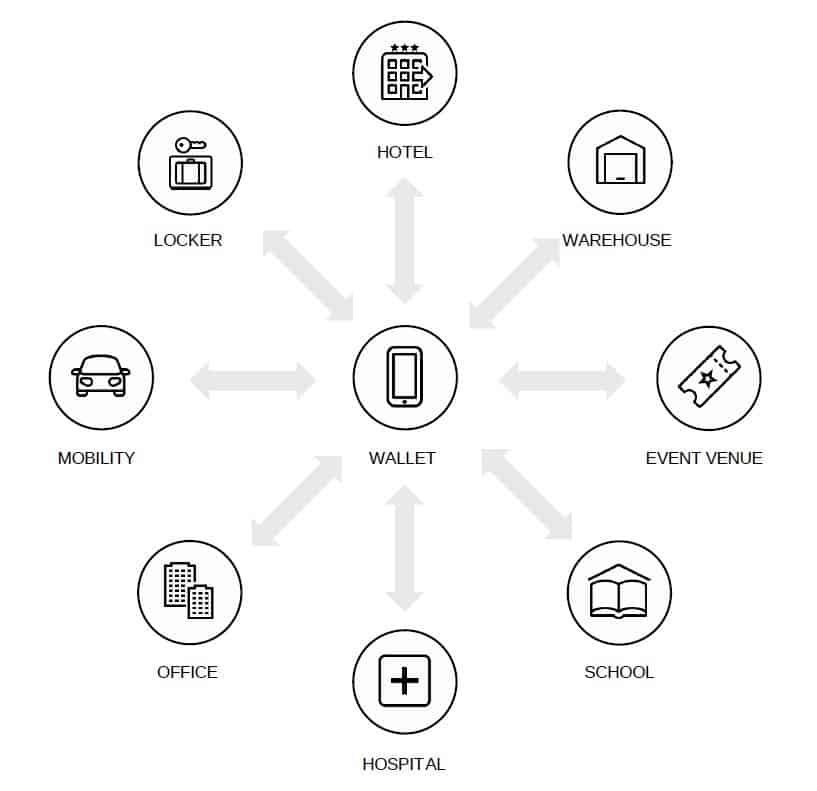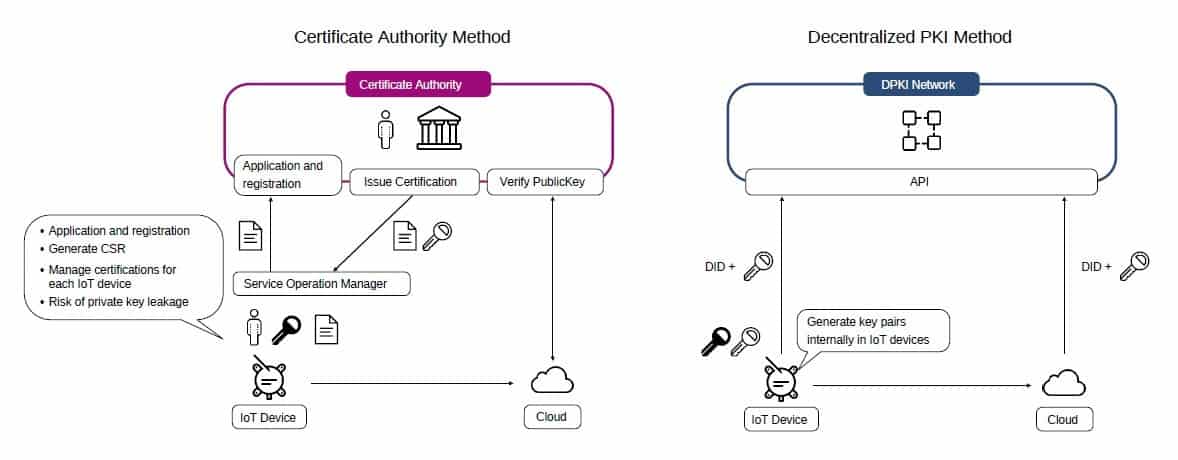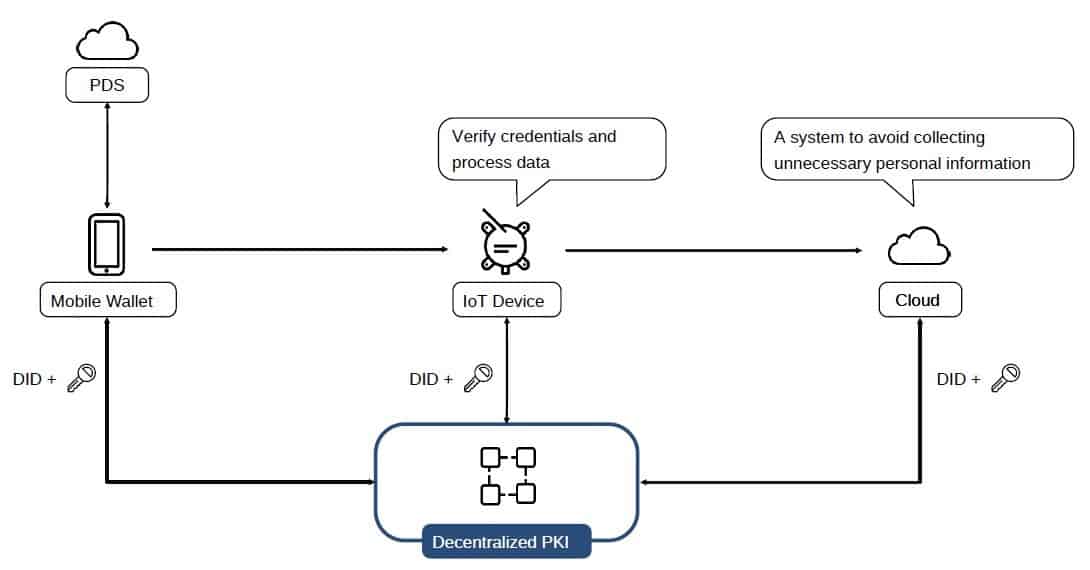Japanese corporations to construct world’s first decentralised IoT platform – Cyber Tech
CollaboGate Japan (CG) has fashioned a enterprise alliance with Tessera Know-how (TSSR) to develop a decentralised IoT platform – a primary on the earth – that may use strong hardware-based safety performance of the Renesas’ microcontrollers (MCUs) to confirm contactless transactions performed by IoT units.
Tokyo-based CG offers Japan’s first decentralized ID platform known as UNiD, whereas the Yokohama-based TSSR, has robust experience in IoT system software program improvement.
The rise of the Keep-at-Residence economic system has accelerated the adoption of contactless transactions on the shopper stage, and each corporations see an enormous enterprise potential in offering verification of IoT units used contactless transactions. Significantly with the shift to contactless transactions in good financial institution branches, digital concierges at healthcare and authorities providers, digital orders at eating places, and automatic receptions at places of work and motels.
In accordance with a Deloitte research, the market dimension of the contactless economic system in Asia Pacific will attain US$11 trillion, double the present stage.
“With the COVID-19 pandemic, the quantity and sort of companies that must work together with customers contactless have exploded past the precise industries. We imagine that the verifiable information alternate platform between “folks” and “machines” in a decentralised method, will help the transformation to contactless methods in a variety of fields, together with new work types, mobility, logistics, and good cities, and can contribute to progress our digital society. We’re happy to be the primary mover on the earth to tackle this problem,” stated Masayoshi Mitsui, CEO, CollaboGate Japan.
A decentralised IoT platform
With the alliance, each corporations will probably be engaged on a proof-of-concept challenge that intends to construct a “decentralised IoT platform” that easily connects folks and issues, and a “good concierge” that allows the contactless economic system by utilizing “UNiD” decentralized ID platform developed by CG and TSSR’s experience in embedded system improvement on Renesas’ MCUs.
“Within the present Web system, it’s tough to mechanically confirm the info supplied by customers with out a trusted third celebration. In actuality, the guide verification means of the info remains to be essential for companies. By introducing a decentralised identification mechanism to IoT units, we will construct a mechanism that permits them to autonomously confirm the info supplied by customers. It will allow the protected and fast supply of providers of their wants,” the businesses stated in a press assertion.
They added: “On this challenge, we are going to construct a prototype of a “good concierge” with an identification verification perform to be used in BFSI, healthcare, authorities, and entry administration at places of work, motels, factories, logistics warehouses.”
IoT units should be capable to accurately establish, authenticate, and authorised customers, mechanically confirm the info utilized for, contemplate person privateness, and make sure the safety of unattended IoT units. A decentralised IoT platform that meets these necessities is required for a clean transition from the face-to-face to the non-face-to-face system.
CG”s and TSSR’s “good concierge mannequin has 4 steps: first, service supplier points credentials (identification verification info, utilization allow) to the person’s cellular pockets; second,the person sends the credentials saved within the pockets to the IoT system; third, the IoT system verifies the credentials and opens/closes the gate; and fourth, entry log is distributed to the cloud server.
With the good concierge mannequin, folks can examine in to motels, lodging, and different lodging services and unlock their rooms by merely carrying their cellular app. It might additionally streamline the validation and entrance for dwell music, live shows, baseball, soccer, and different sports activities, in addition to theme park services. The system can also be anticipated to allow contactless operations and effectivity which were performed face-to-face, such because the environment friendly administration of workplace guests, logistics warehouses, medical and academic services.

Elevating IoT safety
IoT units which are linked to the community are topic to safety dangers reminiscent of hacking and identification theft. For one, the entry IDs and passwords hard-coded into IoT units are susceptible if they’re left as default settings or are straightforward to guess. In reality, there was a case the place numerous IoT units had been illegally accessed and used as a botnet to launch DDoS assaults.
For that reason, safety by the PKI requirements has vital benefits over the password methodology. Nevertheless, the standard PKI requirements utilizing CA certification authorities require guide administration of many certificates for every IoT system. Along with being a really time-consuming activity, there are dangers such because the leakage of personal keys managed by the service operator. As well as, the effort and time required to resume certificates result in using certificates with an extended expiration date, which causes vulnerabilities. Thus, the standard PKI requirements have issues by way of value, operation, and safety.
By introducing a decentralised ID mechanism to IoT units, first, a key pair is generated inside the IoT system, then the general public key comparable to the digital signature is registered within the decentralised PKI community. Anybody from the community can reference this public key, and a cloud server speaking with the IoT system can retrieve this public key and confirm the digitally signed information. That is anticipated to get rid of the necessity for guide verification, improve safety power, and considerably scale back the working prices of IoT units.

Enabling privacy-preserving information transactions
CG and TSSR may even design the decentralised IoT platform to adjust to present rules reminiscent of GDPR and CCPA, which impose a separation between holding information and utilizing the info.
In Japan, the Act on the Safety of Private Info is scheduled to take impact in April 2022, and the dealing with of non-public information by way of IoT units would require system design based mostly on the identical consideration of particular person privateness. Decentralized IoT platforms present a mechanism that allows IoT service suppliers to offer the specified providers with out retaining pointless private info. It offers a mechanism for protected and clean authentication and information transactions between folks and IoT units based mostly on private consent, utilizing a mechanism the place people management their private info.

Sakae Ito, vp of IoT Platform Enterprise Division at Renesas Electronics is happy to contribute within the decentralised IoT platform with its safe MCU/MPR applied sciences.
“We hope that this demonstration experiment of the decentralized IoT Platform by the CollaboGate and Tessera will show IoT units can carry safety and reliability in addition to improved comfort to customers, increasing the demand for contactless functions,” he stated.
